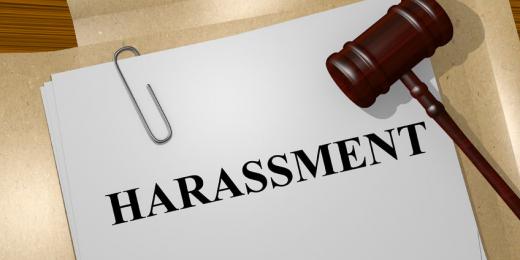Ending Sexual Harassment at Work?

With the publicity generated by the high profile #MeToo campaign, the exposure of sexual harassment within the Houses of Parliament and other prominent workplaces across the world, it seems very appropriate that the Equality and Human Rights Commission should have recently published a report into sexual harassment in the workplace in the UK.
With evidence from over 1000 employees and employers, it gives a comprehensive – and fairly depressing – overview of sexual harassment in the workplace in the UK. In bring together the report, ‘Turning the Tables: Ending Sexual Harassment at Work’ the EHRC spoke to employees and employers between December 2017 and February 2018. The report records employees’ experiences as well as employers’ responses and makes a number of recommendations aimed at ending sexual harassment in the workplace once and for all. Sadly, most UK employment lawyers won’t be surprised to see the extent of sexual harassment in the workplace exposed in this report – we just hope that the report will prompt positive and decisive action.
How widespread is sexual harassment in the workplace?
So what did the report reveal about sexual harassment in the workplace? The ECHR report was designed to highlight the range of experiences rather than the scale of the problem. Of 750 responses from individuals who had experienced sexual harassment at work, 75% had experienced sexual harassment themselves, whilst the remaining 25% had witnessed it, or supported colleagues or someone else going through it. Although some men reported being sexually harassed, it was overwhelmingly women who experienced the harassment, whilst men reported witnessing it or supporting someone through it. As most solicitors advising on employment law for employees would support, the findings showed that harassment was mostly perpetrated by a senior colleague at work, although about 25% was perpetrated by a third party – a client, a supplier or service user. About 80% were permanent employees, and sexual harassment was reported as early in the Employment relationship as during the recruitment process.
What are the barriers to reporting sexual harassment?
With such wide-ranging experience being reported to the EHRC, and with the publicity surrounding #MeToo highlighting the widespread and endemic nature of sexual harassment, why is so little being done about it? Why, in the 21st Century, is sexual harassment still rife? These are questions many of the top employment solicitors have been asking for many years. It seems that despite discrimination policies and awareness, few people feel able to report the sexual harassment they suffer. In the words of the report
“Too many people are being silenced by toxic workplace cultures and very real fears of victimisation” Not only that but “…employers’ responses are inconsistent and in many cases risk being ineffective”
The report documents a catalogue of failures on the part of management to recognise the problem of sexual harassment, and in many cases are seen as part of the problem. Most of the responses received to the question ‘How helpful was the response from managers and HR staff?’ was ‘very unhelpful’.
What does the EHRC recommend?
Perhaps the most important part of the report are the recommendations the EHRC has made in a bid to stamp out sexual harassment at work once and for all. They include:
- A mandatory duty on employers and a statutory code of practice to require all employers to take effective steps to prevent and respond to sexual harassment
- Targeted sexual harassment training from ACAS for managers, staff and workplace sexual harassment ‘champions’ to support employers in achieving change
- The development by the Government of an online reporting tool to make it easier to report sexual harassment
- Publication of sexual harassment policies on the employer’s website
- Restrictions on the use of non-disclosure and confidentiality clauses which prevent employees speaking out about harassment they have suffered
- Introducing a mandatory duty on employers to prevent victimisation, with interim relief available for employees who are dismissed for making a complaint
Will the report and recommendations deliver results?
If nothing else, the EHCR report has highlighted a situation that top employment law firms in London have long been aware of: that sexual harassment at work is endemic and extends throughout the workplace, and beyond, leaving employees vulnerable not only to the unwanted behaviour of colleagues, but of clients, suppliers and third parties. The report has made some clear recommendations, based on evidence from employees and employers and puts sexual harassment – or rather, ending sexual harassment in the workplace, firmly on the agenda. It is for the Government to take action to bring this into being and put a statutory framework in place to make these recommendations a reality. On the meantime, should you be keen to tackle sexual harassment within your organisation, our employment law services for employers include bespoke training, tailored to your organisation, to raise awareness of sexual harassment and to help you implement strategies designed to promote a workplace that is free of discrimination and harassment.
OTS Solicitors’ team of employment law solicitors in London are experienced in all aspects of employment law. If you are looking for an Employment lawyer in the city of London, either to help you as an employer to improve your workplace practices, or to support you if you have been the victim of sexual harassment in the workplace, call us on 0203 959 9123.



